September 3, 2018
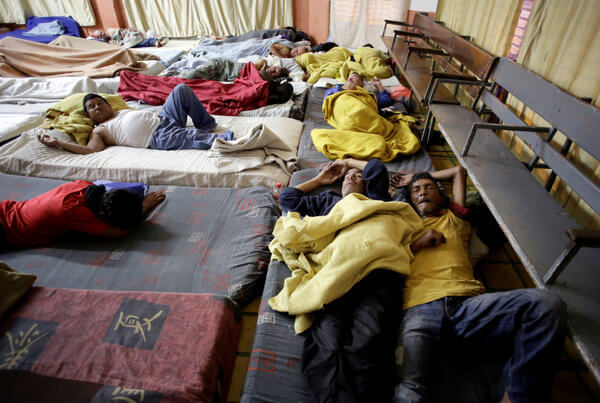
Nicaraguan Refugees sleep in a San Jose church in Costa Rica. (Reuters)

This weekend, Iran and Syria signed a deal for Iran to continue military action within Syria in support of Assad’s government. Although the U.S government strongly advised Iran to withdraw last week, Iranian officials say that they do not have any future plans to disengage.
Since the start of the Syrian conflict in 2011, it is estimated that just under 100,000 Syrians have been disappeared. According to the Syrian Network for Human Rights, Assad’s Regime is responsible for just under 90 percent of those disappeared while the other 10 percent of people have gone missing due to rebel and Kurdish militants. This has left many families in distress as they are unaware of the whereabouts of their loved ones. Although, starting this past April, families have been requesting records from register offices and rights groups in hopes of receiving news about their family.

Over the weekend, the applicant registrations for Attorney General closed. Among the applicants, there are a total of forty-seven men and six women including former government minister Jorge Perez Valenzuela, and ex-judge Cusi. Cusi was formally dismissed from his position as a judge at the Constitutional Court due to being guilty of crimes contrary to the constitution.
On Sunday, President Evo Morales gave a speech in Cochabamba where he suggested a plan to advocate for maritime disputes at the Hague sometime between October and December. Morales has issues with the violation of Bolivia’s sovereignty, given the ongoing dispute between Bolivia and Chile. The conflict stems from Chile’s lack of recognition that Bolivia has an outlet into the Pacific Ocean. In his speech, Morales recalled that more than one Constitution of Bolivia’s neighboring states recognizes their right to the Pacific Ocean. Rodríguez Veltzé, former Bolivian president and head of the maritime conference, hopes the decision will be heard by December in front of the International Court of Justice.

Since anti-Ortega protests have erupted across the country beginning in mid-April and the government began cracking down on them, more than 23,000 people have fled the country, according to the United Nations Refugee Agency. An estimated 200 Nicaraguans are trying to seek asylum daily in Costa Rica. Further, there is a camp nearly a mile outside of the Costa Rican town of La Cruz where up to 2,000 people are able to stay.
This week, the UN Human Rights office in Central America received a letter from Nicaragua’s foreign ministry asking the UN to conclude its support in Nicaragua. The expulsion of UN human rights aid came after they published a report with details on the abuses and repression towards protesters from the government and from president Ortega. The UN security council plans to discuss this situation further in early September.

This morning, the DPRK chose to release a previously detained Japanese tourist, Tomoyuki Sugimoto, who had been detained for an unspecified crime earlier this month. The Japanese government has made it clear that this would be an issue moving forward, particularly as it brings to mind past situations in which Japanese citizens have been kidnapped by the DPRK government and have yet to resurface.
According to an expert in discussion with CNBC, the United States is in a weaker place in its negotiations with the DPRK than it had been prior to the historic meeting between Donald Trump and Kim Jong-un in Singapore at the beginning of the summer. Resulting from the agreements set in place, joint military exercises between the American and South Korean governments have stopped, and states have begun to exude less pressure on the DPRK.
Despite high tensions continuing between the DPRK and United States, South Korea has continued to make conciliatory gestures towards its northern counterpart. Recently, the American government stated that it would condemn attempts by South Korea to send a joint train across the border to the DPRK as part of an exploratory mission, and explicitly forbade its ally from doing so.

United Nations officials stated last Monday that Myanmar military leaders must face investigation for the genocide against the Rohingya in the northern Rakhine state. The United Nations report released names six different officials who it claims should be prosecuted specifically, all of whom are senior military officials. The United Nations has called upon the International Criminal Court to refer to this case, claiming that the Myanmar government’s actions in no way could ever constitute military necessity, as has been claimed by government officials. This will make it considerably more difficult for the Myanmar government to ignore the international allegations of genocide, as it has been doing for the last year.
An investigation by Facebook has revealed a covert Myanmar military propaganda campaign hosted on the social media platform, aimed at spreading information that targeted the ethnic Rohingya Muslim minority. A Facebook representative confirmed that pro-military propaganda was spread alongside false and sometimes intentionally angering content regarding the Rohingya. Facebook is currently in the process of banning the accounts, which have been definitively linked to the government.

On Monday, the U.S and Mexico reached a trade deal on NAFTA. While the deal does not include the Sunset clause, which president Trump was aiming for, the negotiations ended favorably for Trump with a breakthrough allowing a raise in North American content requirement from 62.5 percent to 75 percent. While the U.S and Mexico have come to an agreement, Canada has yet to reach a deal and will not sign a new NAFTA unless it is good for Canada and its middle class.
On Friday, The Trump Administration announced that it will end all funding to the United Nations Relief and Works Agency for Palestine Refugees (UNRWA). Previously, the US has given about one-third of the annual budget, providing more than $350 million. UNRWA has allocated these fundings into a variety of resources which run schools and clinics for Palestinian refugees in occupied territories of the West Bank and Gaza, and in Jordan, Syria, and Lebanon.

An outspoken opposition lawmaker was pardoned by royal decree over the last weekend, the first member of the now-dissolved opposition party to be freed nearly a month after premier Hun Sen won a virtually uncontested election. The opposition lawmaker, Um Sam An, is a dual Cambodian-American national, who had been charged with “inciting crime and racism” as a result of his political opinions. Despite his early release, fourteen politicians remain behind bars, and many more former opposition lawmakers have fled the country for fear of imprisonment.
This week, Cambodian officials met with the Indian External Affairs Minister Sushma Swaraj to discuss bilateral, multilateral, and key international issues at the Ministry of Foreign Affairs in Phnom Penh. Recently, India has been seeking to improve relations with Southeast Asian nations in an attempt to counter the rising regional influence of China.
Australian filmmaker James Ricketson has been sentenced to six years in jail for espionage in Cambodia, despite the fact that the prosecution did not even identify the country for which he was allegedly spying. In a pre-election video, the Cambodian government claimed that Ricketson was part of a vast international conspiracy, backed by Americans, to overthrow the government led by Prime Minister Hun Sen. Human Rights Watch has condemned the sentencing, and Ricketson’s lawyer has stated that he will be appealing the decision.

Mexico’s Congress has opened up their first session under the new president-elect, Andres Manuel Lopez. The new Congress plans to make some changes, including tackling new policies against corruption and creating policies towards energy reform. The new Congress is different than its predecessors given its left-wing majority and an equal number of men and women. This is the first time in Mexico’s history where there is the same number of men and women in Congress.
This week, Mexico and the U.S came to a conclusion on their NAFTA deal. While the U.S and Canada continue to discuss bilateral agreements, Mexico will wait to participate in any necessary trilateral deals.
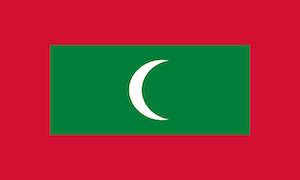
After floats seeming to depict the 9/11 attacks in New York City in a tongue-in-cheek manner were displayed during Eid festivities, an event organizer claimed that the display was predominantly “educational.” This is another concerning event given the trend of radicalization in the Maldives, which has been on an upward trend in recent years and caused concern among members of the international community. One US-based security and risk management firm claims that there are at least 200-250 radicals from the Maldives are known to be fighting in Syria and Iraq at this time.
The opposition presidential candidate in the upcoming elections has raised concerns regarding corruption and embezzlement in relation to infrastructure championed by the current government regime. Opposition candidate Ibrahim Mohamed Solih said that the government is refusing to look at the “dark” side of the projects, specifically as it appears that firms are bidding far more than the actual market value of the construction itself – and the proposals were in many cases given to the most expensive bids on the construction contracts.

This Monday, Emmerson Mnangagwa was officially sworn in as the President of Zimbabwe, claiming that he hoped to act as a servant to the citizens of the state. Opposition leader Nelson Chamisa has been protesting the results of the election, claiming with his supporters that the results had been doctored. After the Constitutional Court threw out Chamisa’s challenge, however, protests calmed, with many Zimbabwean citizens fearing a return of violence and instead hoping to move on with their lives.
Despite having been sworn in without much incident, Mnangagwa is facing his first challenge as president as he is under pressure to select a new cabinet. Party officials are reportedly trying to gain the president’s favor in hopes of being appointed, and others are attempting to pressure the president to take on people who provide skills that the new regime desperately needs. One of the election promises made by Mnangagwa was to ax underperforming ministers, something that he has yet to follow through on.
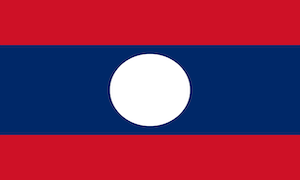
In the Luang Prabang province of Laos, flooding has killed at least 6 people after heavy rainfall over the past weekend. Other northern provinces have been faced with torrential rains, and many worry that residents of these provinces will soon be running out of food and potable water if the situation is to continue. Sources claim that many primary and secondary schools across the country have also been flooded, and will be unable to open for the start of the school year.

Amid a crackdown on political prisoners and free speech, Human Rights Watch has called upon the Australian government to press Vietnamese officials to cease the systematic abuses of the public as the 15th Australia-Vietnam Human Rights Dialogue approached. Over the past few months, Vietnamese officials have arrested and sentenced dissidents, religious activists, and protesters over perceived opposition to the government.
Despite the fact that freedom of assembly is completely legal in Vietnam, little dissent is tolerated; Vietnam has begun to prepare for the upcoming National Day by sending police and military forces to the capital, in an effort to prevent big gatherings and protests during the holiday next week. Vietnam also demanded this week that Monsanto pay compensation to victims of Agent Orange, which was used by the United States military during the Vietnam War.
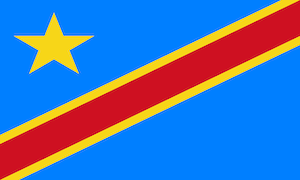
This weekend, former vice-president Jean-Pierre Bemba was banned from entering the presidential election. Bemba submitted his application in early August. Prior, he had spent 11 years in exile after being guilty of war crimes and crimes against humanity in the early 2000’s. Now, Bemba has been formally banned for upcoming elections due to his conviction of bribing witnesses at the International Criminal Court in the Hague. According to Congolese law, people declared guilty of corruption are not able to run for office.
On Tuesday, a former Congolese militant leader was put on trial in the Hague. Named “the Terminator”, Bosco Ntaganda faced 18 charges of crimes against humanity including murder, rape, sexual slavery, and conscripting child soldiers, all during his time with the Union of Congolese Patriots (UPC) in 2002-2003. Given the amount of case material, there is not yet a date set for Ntagandas final verdict.

On Sunday, August 26th, an electoral vote campaigning for anti-corruption within the Colombian government came up just shy of one-third of all voters. In order for the seven proposals for referendums to pass, the vote cast nationwide needed 12.1 million votes, but only 11.7 million ballots were in favor of the change. Changes would include more transparency within the government and penalties committed by white-collar criminals. While the votes were not enough, it came incredibly close. This showed to be a positive step forward, showing a clear and popular message that citizens want to see laws promoting anti-corruption. In response, president Duque urged lawmakers to move forward with reforms.
This week, Colombian President Duque has followed up with a decision made by Colombia, Argentina, Brazil, Chile, Peru, and Paraguay in April to temporarily suspend their involvement in the pan-South American UNASUR bloc. In 2008, the 12 member group was created in order to promote political and economic union, but since Venezuela is a member of the bloc, Duque is attempting to use this diplomatic approach by exiting in order to isolate the Venezuela regime. The ballooning influx of Venezuelans in Colombia is stretching social services and creating fears of unrest. Duque states that “if the dictatorship does not end, the migration will not stop.”

The UN reports that the Venezuelan migration crisis is beginning to look similar to the Mediterranean crisis situation seen in 2015. Due to its neighboring countries creating stricter border regulations in an effort to stop the fleeing migration, there are fears that this situation could become further catastrophic. More than 2 million Venezuelans have fled the country since 2014, with thousands trying to cross borders every single day.
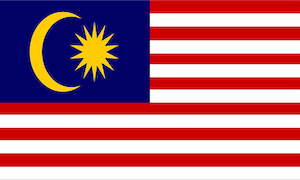
On Monday, Malaysia made the decision to disallow foreigners from buying residential units in the costly Forest City infrastructure project, which was revived after the shock victory of Mahathir Mohamad in presidential elections this past May. Under the previous corrupt regime, the building had been hugely attractive to Chinese investors; however, it has been made clear that this infrastructure project is now for Malaysians themselves.
On Wednesday, a former spy chief was taken into custody over the alleged theft of funds that had meant to be used for May’s general elections. The man in question, Hashanah Abdul Hamid, was an ally of the former president who is now under suspicion for corruption. He is under investigation for misuse of power.

This weekend, Cuban artists held a protest against a new law that allows censorship. As seen in Decree 349 in the Official Gazette, the Culture Ministry tries to regulate art that is not sponsored by the government. This bars independent artists from displaying their work in private and public areas and stops them from being paid for their work. Further, the Decree allows artists to be fined for displaying their art if they do not have government permission. The law will come into effect in December, although the Culture Ministry has not given an explanation for their new sanction. The artists who protested this weekend were arrested, meanwhile others are signing online petitions and creating open letters in order to advocate against Decree 349.
Poland — Polish President Duda stated this week that the countries Supreme Court needs a new president, even though her term is not yet over. President Duda is searching for someone to replace 65-year-old Gersdorf. (FoxNews)
The Philippines — Philippine president Rodrigo Duterte came under fire once again for his offensive statements about sexual assault this Thursday, stating that “As long as there are many beautiful women, there will be more rape cases.” (Independent)
Thailand — Human Rights Watch called upon Thai authorities to release recently arrested refugees and asylum speakers, many of whom have officially recognized UN refugee status. (Human Rights Watch)
Pakistan — This weekend, the US ended $300 million worth of funding towards Pakistan. Washington claims that Pakistan has failed to hold militant groups accountable for their actions. (The Guardian)
Bangladesh — On Tuesday, the leader of the UN along with diplomats from major Western countries called for action against generals in Myanmar for genocide charges. (New York Times)